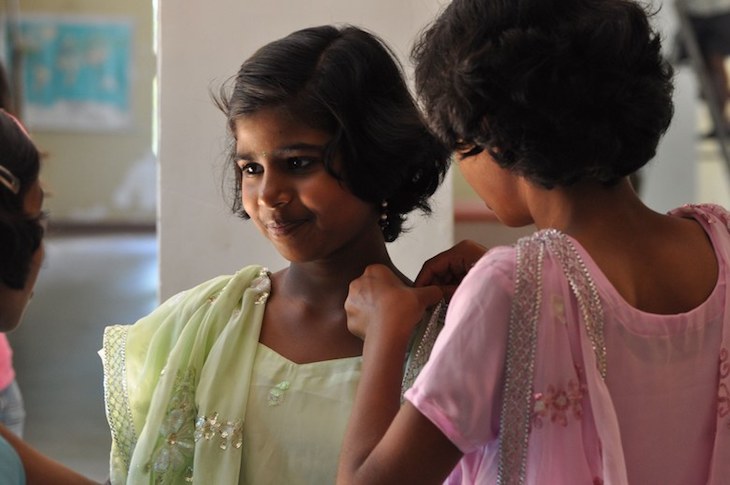All this week I have been trying, with considerable success, to avoid being bludgeoned by TV programmes telling me in various sensitive and imaginative ways just how brilliant, heroic and historically maligned homosexual men are. I achieved this by sticking to Netflix.
One of the great things about Netflix (whose annual subscription costs just half the BBC licence fee, by the way) is that though it’s probably run by lefties it doesn’t try to ram its politics down your throat. Maybe this is one reason why its 100 million-plus subscribers are so much less resentful than BBC viewers: they’re being offered choice, variety, entertainment — not worthiness, race, gender quotas and compulsory indoctrination.
This week Netflix helped me catch up — under Girl’s instruction — with an addictively trashy series from 2012 about spoilt rich kids in New York called Gossip Girl; and also with a gripping documentary series — Captive — about how horrible it is being taken hostage. Best of all, though, was Daughters of Destiny — a four-part series telling the delightful true story of the Shanti Bhavan school in India’s Tamil Nadu province.
It was founded by an Indian tech billionaire called Abraham George who, having made his fortune in the US, decided he wanted to give something back to his home country. He did this by establishing a free school, outside Bangalore, for children of the lowest of the low: untouchables who would otherwise get only the most rudimentary education and would be destined for a life of toil, squalor and penury.
Children — only one per family, sadly — are brought to the school as boarders aged four, with just two holidays a year, and are supported for 17 years until their first day of work. At which point they are expected to repay their privilege by creating ‘positive change in their families and communities’ — i.e. by being hugely successful.
Failure is not an option. This gave the otherwise utterly heartwarming opening episode a slightly unsettling quality. One of the girls whose fortunes we are following is an adorable imp called Thenmozhi. When we first meet her, aged seven, she is chatty, eager, boundlessly optimistic. Two years later, she has grown more reserved and is falling behind with her work. If this carries on, it is gently hinted, Thenmozhi may end up back on the scrapheap, endlessly assembling matchboxes with glue that pulls the skin off your hands, just like her listless, doomed brother and sister.
I loved this documentary. As is Netflix’s way, it is filmed to the highest standards by the kind of talent huge Netflix budgets can buy: Oscar-winning director Vanessa Roth; music by composer A.R. Rahman. Your heart leaps with joy not just at the charm of the children featured and the love, warmth and dedication of school’s staff, but also at the skill of the cinematography, which makes everything, from the quarry where some untouchable parents toil, and the shacks where they live, to the school itself, look so arresting and beguiling.
If you had time and money and wanted to make a difference, this project comes as close as anything to the perfect solution. Like Little Orphan Annie, only with dozens of kids and for real, here, played out for us, was a fairytale miracle: children plucked almost randomly from the very bottom and given the break at least a millennium’s worth of their ancestors have been denied.
How wonderfully strange is that? The kids here are participating in a social experiment that is like a utopian variant on Kazuo Ishiguro’s dystopian novel Never Let Me Go. Obviously, unlike the special children in the Ishiguro, they’re not being reared as privileged organ donors. (Though that, funnily enough, was the rumour that was spread about Shanti Bhavan when it first opened.)But there is something spooky and unnatural — albeit in a mostly good way — about the enterprise. Yes, it’s amazing. But what about the siblings who don’t get admitted? What about the kids who don’t make the grade?
Like all the best documentaries, Daughters of Destiny doesn’t steer you to any conclusions but lets you think for yourself. It is at least as good, if not better, than the kind of documentaries the BBC used to make in the days when we were assured that excellence was only consistently achievable with a compulsory licence fee. Now that that argument is well and truly scotched, I’d love to know what other desperate excuses this grotesquely biased, nauseatingly worthy, hideously outmoded relic of 1920s nanny statism can furnish to justify its existence.







Comments